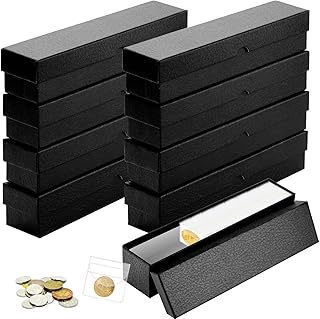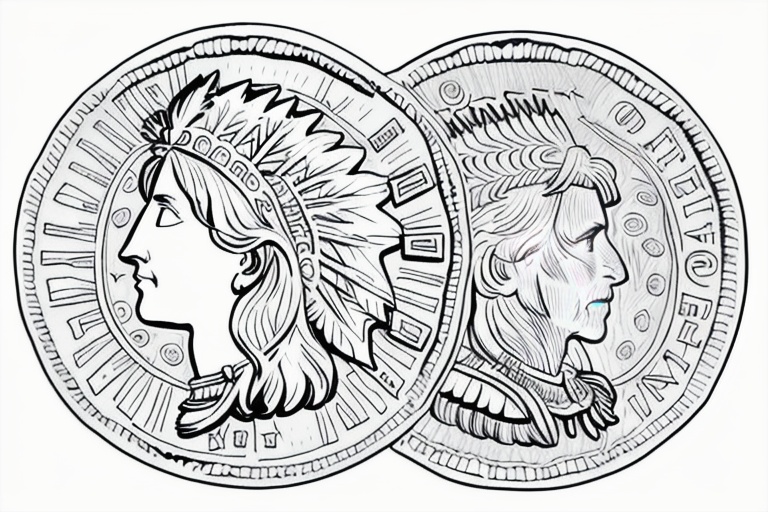Exploring the world of coin collecting can prove to be an immensely rewarding journey, both financially and historically. Whether you've taken up the hobby out of sheer passion or have recently inherited a collection, understanding and maximizing the value of your coins is key to a successful and profitable experience. Coin collecting isn't just about accumulating pieces of metal—it's a venture steeped in history, art, and economics that has hooked enthusiasts for centuries.
Exploring the world of coin collecting can prove to be an immensely rewarding journey, both financially and historically. Whether you've taken up the hobby out of sheer passion or have recently inherited a collection, understanding and maximizing the value of your coins is key to a successful and profitable experience. Coin collecting isn't just about accumulating pieces of metal—it's a venture steeped in history, art, and economics that has hooked enthusiasts for centuries.
Inheriting coins often comes with a mixture of emotions and a bundle of questions. What steps should you take to ensure that their value is preserved? How to sell them judiciously? Let's navigate through these crucial first steps, shall we?
Step 1: Sort and Preserve the Collection
Firstly, it is imperative to handle the inherited coins with the utmost care. While the temptation to clean them until they shine might be strong, this is one case where the original state—the patina—is your ally. Aggressive cleaning can severely devalue your coins, so resist the urge and let them retain their authenticity.
Organize your collection meticulously. Grouping coins by their date, mint mark, denomination, or country can provide a clearer picture of what you have, aiding in a more straightforward assessment process.
Step 2: Grade and Value Your Coins
Acquiring knowledge about your coin collection should be your next move. Museums, coin stores, and coin shows are excellent venues to absorb as much information as possible. Online forums, such as Reddit's coin collecting community or the Professional Numismatic Guild's website, provide a wealth of insights from fellow numismatists.
"The Red Book: A Guide Book of United States Coins" is regarded as the numismatist's bible and should be your go-to resource. It is updated annually, offering detailed information on coin grades, values, and mintages, among other numismatic data. Remember, your coins' worth is not just in their metallic makeup but also in their rarity, historical significance, and condition.
For non-rare coins constituted of precious metals, valuing them might seem straightforward—you would calculate their worth based on the weight and purity of the metal. Nevertheless, the market for gold and silver fluctuates regularly, so you'll want to make sure you're using the most current rates. If you're considering professional grading, know that it comes at a cost, but it can provide authenticity that enhances the coin's value to potential buyers or collectors.
Step 3: Choose the Right Buyer
Finding a suitable buyer is crucial. Your sale avenues can range from online platforms to local coin shops and auction houses. Metal buyers like CashforGoldUSA cater to those possessing gold and silver pieces with minimal collectible value. They simplify the process and ensure a fair deal is reached quickly.
For specialized or rare collections, the buyer's selection widens. Individual collectors, renowned auction houses, or reputable dealers should be atop your list. Conducting due diligence on potential buyers cannot be overstressed; seeking those with high reputation and transparent practices can save you from undervaluation or scams.
CashforGoldUSA, an established entity with an impressive A+ BBB rating, embodies what to look for in a buyer for gold coins. With guarantees, swift payment, and bonuses for prompt mail-ins, their service is attuned to the needs of those looking to sell their precious metal items with efficiency and peace of mind.
Looking at the Big Picture: Selling Your Entire Collection
Regardless of whether you are selling an individual piece or a vast array, your approach should remain consistent. You might opt for the direct convenience afforded by a metal buyer or the potentially higher revenue attainable through a coin dealer or auction. What's essential is discerning the intrinsic values your collection holds and aligning them with a corresponding market.
Delving Deeper: The Value of Your Coin Collection
Are coin collections money-laden treasures waiting to be unearthed? Indeed, they can be. The value assigned to a coin can pivot on its collectible merit or the worth of its metal content. Rarity, condition, and specific historical features often elevate a coin's desirability in a collector's eyes.
Valuating a collection might seem perplexing, but braking it down simplifies the process. Each coin can be appraised individually for specifics like grade, rarity, and composition. Alternatively, valuing the collection holistically, particularly if it represents a complete series of coins can boost its worth.
It's no secret that rare coins have appreciated over time. The price of metals like gold and silver also tends to climb. In the ever-changing numismatic and bullion markets, staying informed is vital to capitalization.
Navigating Appraisals and Authenticity
The appraisal of a coin collection is a sensitive venture, fraught with the risk of falling prey to opportunistic practices. Seek professionals affiliated with the American Numismatic Association or those accredited by authoritative bodies such as the Professional Coin Grading Service. The cost for their services varies, and while some may charge by the hour, a local metals buyer or services like CashforGoldUSA may offer free valuation with an intention to purchase.
Multiple Pathways to Selling
Multiple routes lay before you to sell your collection—from specialized coin dealers and illustrious auction houses to more accessible outlets such as pawn shops or online buyers. Each carries its own suite of benefits, and the ideal choice may rest on the uniquely personal intersection of convenience, value maximization, and transaction speed.
Education and Market Surveillance
Position yourself advantageously in the coin market by remaining vigilant of trends, frequenting trade shows, and immersing in numismatic literature. The more informed you are, the better the decisions you'll make as you proceed to sell.
Selling a collection is not just about parting with an assortment of coins; it's a chance to connect with collectors who share your enthusiasm and understand the narrative each piece carries. With prudent steps in preservation, valuation, and sale, you transform what may have been a dormant inheritance into a legacy that thrives in the hands of another enthusiast.
Whether you're parting with a single coin or an extensive array, consider each action carefully. The most rewarding transactions come from a foundation of knowledge, calculated decisions, and an appreciation for the chronicles that these coins represent. Enjoy the journey through the spellbinding domain of numismatics, and may your forays into selling be as enriching as your time collecting.
Information for this article was gathered from the following source.




